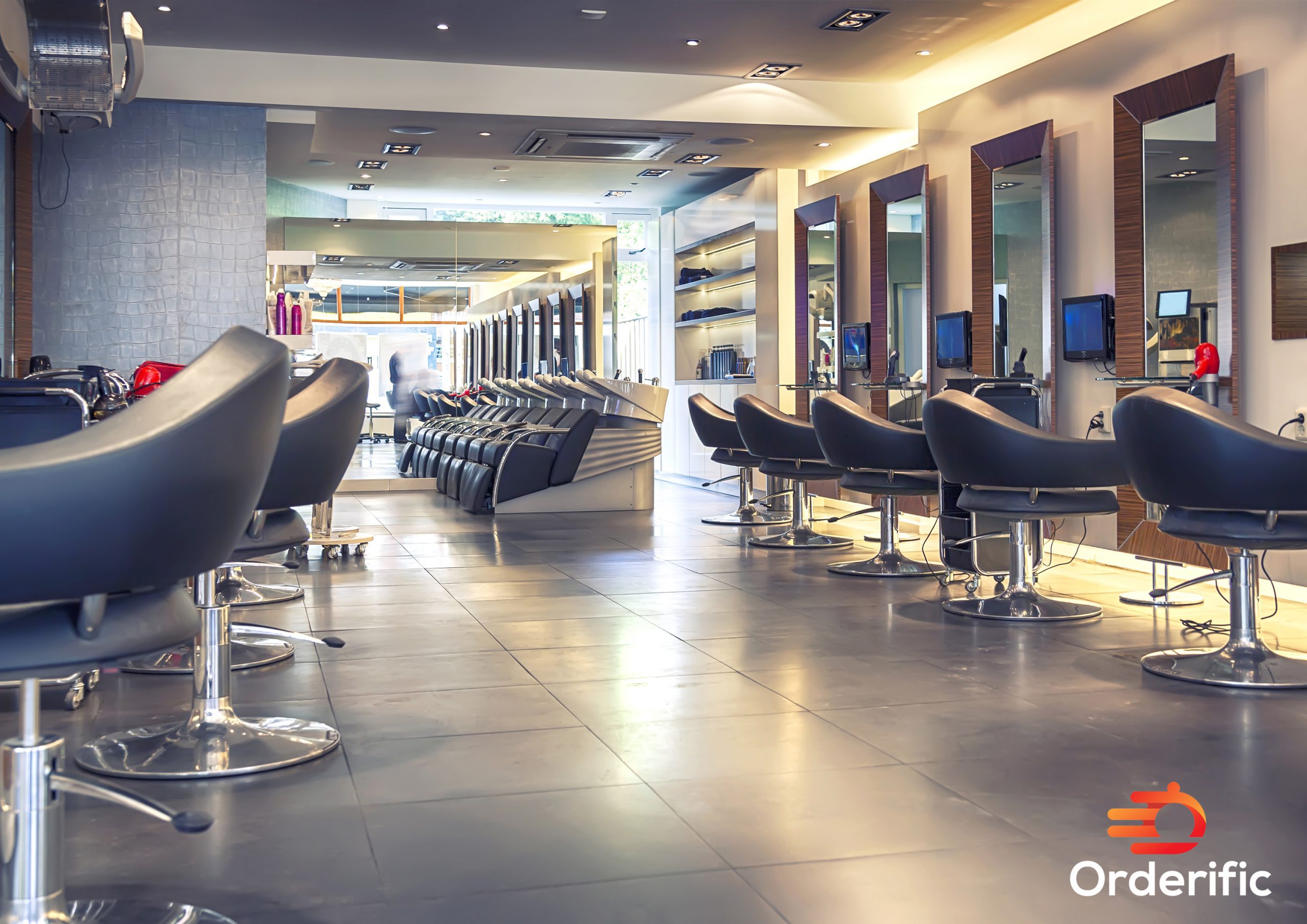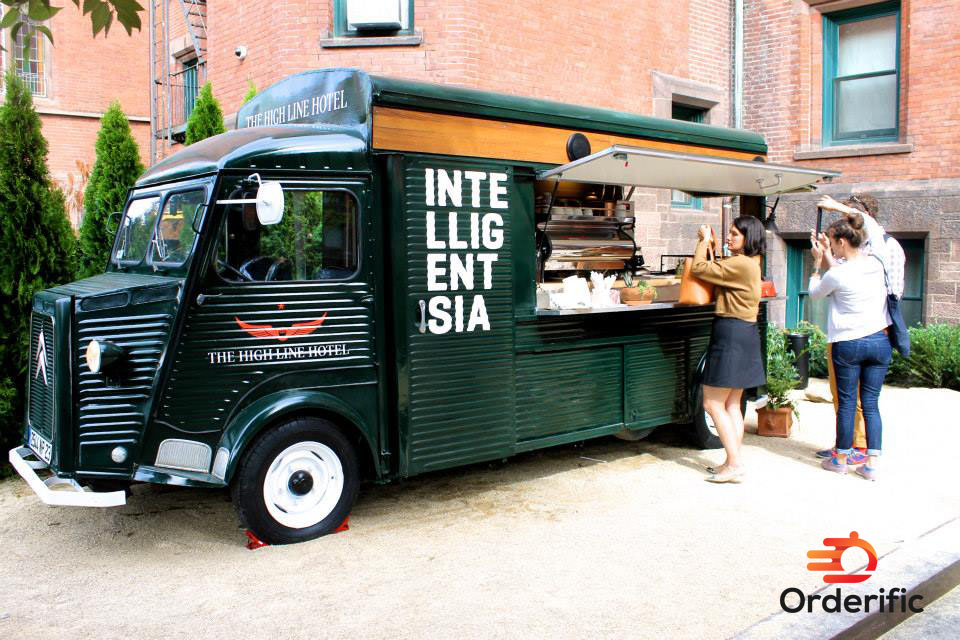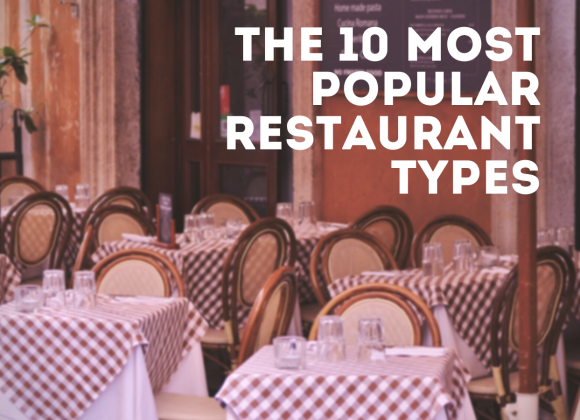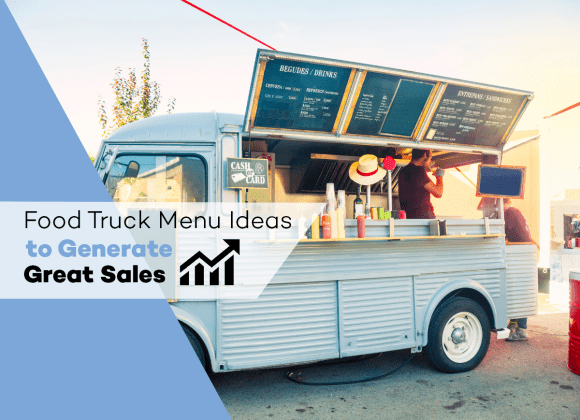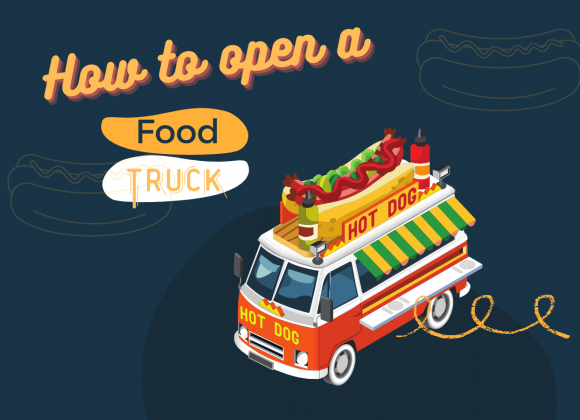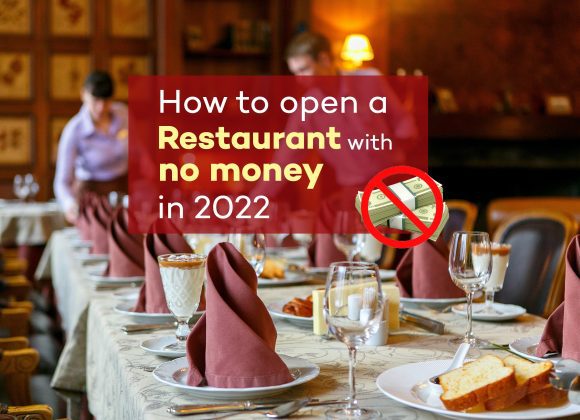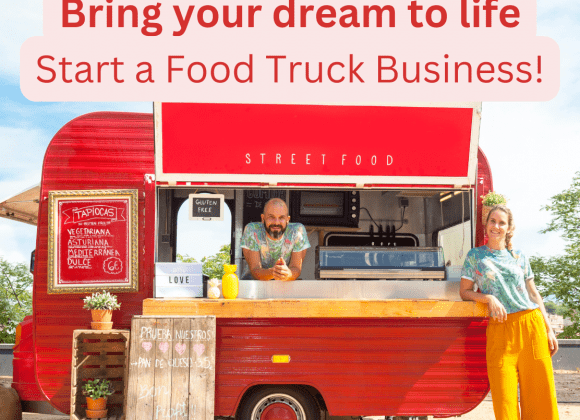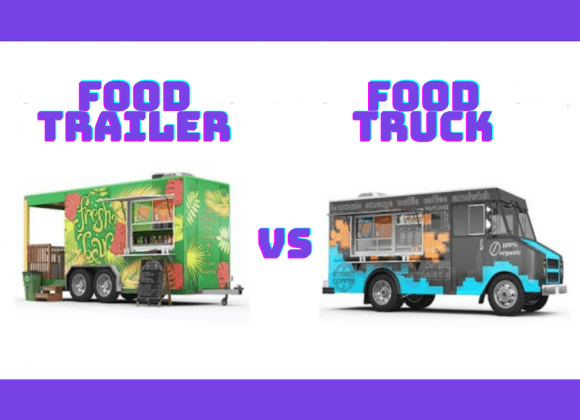Imagine envisioning a business that seamlessly fits into your dynamic lifestyle. The allure of being your own boss, coupled with the satisfaction of delighting people with delectable food, holds an undeniable charm. If this resonates with you, then consider the enticing prospect of owning a food trailer – a genuine opportunity to transform these dreams into reality. In recent years, food trailers have surged in popularity owing to their convenience and cost-effectiveness in comparison to traditional restaurant spaces.
Embarking on the journey of a mobile food business demands effort and commitment, but the barriers are more manageable than they might seem. This comprehensive guide is designed to walk you through the process of initiating a food trailer enterprise, encompassing everything from essential equipment procurement to the art of devising an impactful marketing strategy.
Let’s delve into the realm where your aspirations of launching a food trailer business blend the realms of enjoyment and profitability – let the exploration commence!
What is a Food Trailer and Why Start One
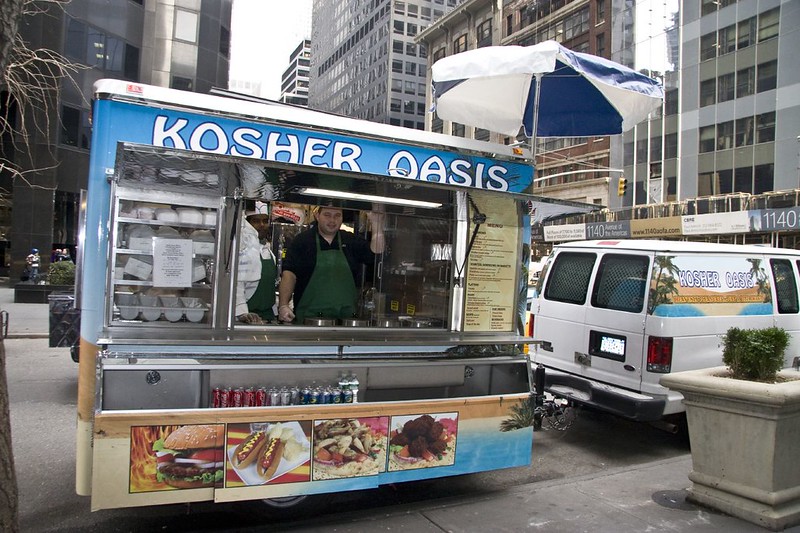
A mobile culinary venture, known as a food trailer (like food truck), offers a unique dining experience by bringing the kitchen directly to the customers. Unlike conventional restaurants, these trailers are ingeniously housed in a self-contained and compact unit, allowing them to travel and set up at various locations.
Complete with all essential kitchen equipment and facilities, these trailers are well-equipped to expertly cook, create, and serve an array of delectable dishes. Starting a food trailer business offers numerous advantages that make it an appealing venture:
- Flexibility and Mobility: Food trailers like food truck allow you to take your business to various locations, events, and gatherings. This mobile unit enables you to reach a wider audience and adapt to changing market demands.
- Lower Overhead Costs: Compared to opening a traditional restaurant, the initial investment and ongoing expenses for a food trailer are often lower. You save on rent, utilities, and other fixed costs associated with a physical location.
- Creative Expression: Owning a food trailer provides a platform for culinary creativity. You can experiment with diverse menus and cuisines, tailoring your offerings to suit different events and customer preferences.
- Targeted Marketing: Food trailers can be strategically positioned at events, festivals, and high-traffic areas, allowing you to target your desired customer base directly.
- Engaging Customer Interaction: Operating a food trailer fosters direct interaction with customers. This personal touch enhances the customer experience and builds brand loyalty.
Starting a food trailer business offers a blend of entrepreneurship, culinary creativity, and flexibility. It’s a pathway to turning your passion for food into a tangible and rewarding business venture, with the added allure of engaging with diverse audiences and enjoying a mobile lifestyle.
Planning Your Menu
Crafting a menu for a food trailer involves careful consideration of various factors to ensure a successful and enticing culinary experience. Here’s a step-by-step guide to help you plan a menu for your food trailer:
- Define Your Concept: Start by defining the overall concept and theme of your food trailer. What type of cuisine will you specialize in? Are there any unique or signature dishes you want to highlight? This concept will set the tone for your menu.
- Know Your Audience: Understand your target audience’s preferences, dietary restrictions, and eating habits. Consider the demographic factors such as age, location, and cultural background to tailor your menu accordingly.
- Keep it Manageable: Given the limited space and resources in a food trailer, it’s essential to keep your menu manageable. Focus on offering a concise selection of dishes that can be prepared efficiently without overwhelming your kitchen space.
- Offer Variety: While keeping the menu manageable, ensure you offer variety to cater to different tastes. Include options for different dietary preferences, such as vegetarian, vegan, gluten-free, or low-carb.
- Highlight Signature Dishes: Showcase your unique selling points by including a few signature dishes. These could be your specialty creations that set you apart from competitors and intrigue customers.
- Consider Seasonality: Factor in seasonal ingredients to keep your menu fresh and aligned with the time of year. Seasonal ingredients often provide better flavors and can also help manage costs.
- Pricing Strategy: Determine your pricing strategy by considering factors like ingredient costs, preparation time, and market competition. Your prices should reflect the value you provide while remaining competitive.
Remember that planning a successful food trailer menu requires a balance between creativity, feasibility, and customer preferences. Regularly evaluate the performance of your menu items and be willing to adjust as needed to ensure a satisfying and memorable dining experience for your customers.
Finding the Right Location
Selecting the optimal location stands as a pivotal choice when launching a food trailer venture. The location’s significance cannot be overstated, as it holds the power to either propel your business to success or hinder its growth.
The crux lies in identifying a site abundant with bustling pedestrian activity, a substantial pool of prospective patrons, and a balanced level of competitors. Here are a few things to consider –
Research and Analysis:
- Research areas with high foot traffic, such as business districts, shopping centers, parks, and event venues.
- Consider your target audience and their preferred hangout spots.
- Analyze competitors’ locations to identify gaps in the market.
Legal and Regulatory Considerations:
- Check local zoning regulations and permits required for operating a food trailer in different areas.
- Ensure you have the necessary health department permits and licenses for each location.
Collaborate with Events:
- Participate in local festivals, markets, and events where food trucks are welcome.
- These events can provide a built-in customer base and exposure to new customers.
Scout for Hotspots:
- Identify popular locations where people frequently gather, such as near offices during lunch hours, near schools, or near nightlife districts.
- Look for spots with easy access, parking, and visibility.
Consider Safety:
- Prioritize safety for both customers and your staff. Choose well-lit areas with low crime rates.
- Make sure your trailer doesn’t obstruct traffic or pedestrian pathways.
Build Relationships:
- Establish relationships with local businesses, offices, or event organizers who might be interested in having your food trailer on-site.
- These partnerships can lead to regular and consistent business.
Stay Mobile:
- Embrace the mobility advantage of your food trailer. Experiment with different locations to find the most profitable spots.
- Use social media to inform your customers about your location changes.
Local Community Engagement:
- Engage with the local community and build a loyal customer base. Consider local preferences and adapt your menu if necessary.
Finding the right location for your food trailer requires a combination of research, experimentation, and adaptability. Stay open to trying new locations and be ready to adjust your strategy based on customer response and sales data.
Setting Up Your Food Trailer
Are you envisioning the excitement of taking your culinary creations on the road and sharing them with a wide audience? Launching a food trailer might appear as a complex endeavor, but with meticulous planning and the right tools, your dream can become a reality.
- Begin by defining the cuisine you wish to offer, ensuring that it resonates with the local community you intend to serve.
- Following this, secure a reliable trailer that is both easily transportable and compliant with health codes. Outfit your mobile kitchen with premium cooking appliances, ample storage, and efficient refrigeration.
- Lastly, amplify your venture through effective social media engagement and word-of-mouth marketing.
Armed with these strategies, you can confidently embark on your journey, ready to serve delectable dishes and leave a lasting impression in the culinary landscape.
Marketing Your Food Trailer Business
Promoting and marketing your food trailer business effectively is crucial to attract customers and build a loyal following. Here are some strategies to help you market your food trailer business successfully:
- Create an Appealing Brand Identity: Develop a captivating brand name, logo, and color scheme that reflect the essence of your food and appeal to your target audience. Consistency in branding across your trailer, social media, and promotional materials is key.
- Social Media Presence: Establish and maintain active social media accounts (such as Instagram, Facebook, and Twitter) to showcase mouthwatering images of your dishes, behind-the-scenes moments, and updates about your locations and events. Engage with your audience by responding to comments and messages promptly.
- Food Photography: Invest in professional food photography to showcase your menu items in the best light. High-quality visuals can entice potential customers and make your food stand out.
- Location Tracking: Use social media and a website to announce your daily or weekly locations. Consider using location-based apps or websites that help customers track your trailer in real-time.
- Collaborations and Partnerships: Partner with local businesses, events, or festivals to set up your food trailer. Collaborations can expand your reach and introduce your offerings to a larger audience.
- Offer Promotions and Discounts: Launch special promotions, loyalty programs, or limited-time discounts to attract new customers and encourage repeat visits.
- Food Tastings and Sampling: Organize free or low-cost food tastings to allow people to try your offerings before committing to a full meal. Positive first-hand experiences can lead to word-of-mouth referrals.
- Collect and Showcase Reviews: Encourage satisfied customers to leave reviews on platforms like Google, Yelp, or TripAdvisor. Positive reviews can build credibility and attract new patrons.
- Branded Merchandise: Consider selling merchandise like t-shirts, hats, or stickers featuring your logo and branding. This can help create a sense of community among your customers.
Remember, successful marketing requires consistency, creativity, and a genuine connection with your audience. By implementing a combination of these strategies and staying true to your brand, you can effectively market your food trailer business and build a loyal customer base.
Obtaining Licenses and Permits
Securing the required licenses and permits stands as a pivotal stride when establishing a legitimate food trailer enterprise. The requisites for these authorizations can exhibit substantial diversity contingent on both your geographical location and the nature of the cuisine you intend to offer. Presented below is a comprehensive outline intended to assist you in smoothly maneuvering through this procedural landscape:
- Business License: Most areas require a general business license or permit to operate any type of business, including a food trailer. This license allows you to conduct business within the jurisdiction legally.
- Health Department Permit: Health department permits are essential to ensure that your food preparation and handling practices meet health and safety standards. You’ll likely need to undergo inspections of your food trailer’s facilities, equipment, and procedures before receiving this permit.
- Food Service Establishment Permit: This permit is specific to businesses that prepare and serve food. It ensures that your food trailer meets sanitation and food safety requirements. Depending on your location, there might be different levels or categories of this permit.
- Mobile Food Vendor License: Some areas require a specialized license for mobile food vendors. This license often covers aspects related to operating a food trailer, such as location, hours of operation, and public health regulations.
- Parking Permits: If you plan to operate your food trailer in public spaces, you might need parking permits or approvals from local authorities. Some cities have designated areas for food trucks and trailers.
- Fire Department Approval: Fire safety regulations may apply to your food trailer, especially if you’re using cooking equipment that produces open flames or requires a heat source.
- Zoning and Land Use Permits: Check local zoning laws to ensure that your chosen locations for setting up your food trailer are in compliance. Some areas have restrictions on where food trailers can operate.
NOTE: Each permit will have its own application process, fees, and required documentation. Be prepared to provide information about your business, menu, food handling procedures, and more.
Managing Your Finances
Effectively handling your finances is a pivotal aspect of running a successful food trailer business. By implementing prudent financial management strategies, you can steer your enterprise toward stability and growth. Here’s how to go about it:

- Budget Wisely: Craft a comprehensive budget outlining your projected income and expenses. Factor in costs such as permits, licenses, food supplies, equipment maintenance, staff wages, marketing, and any other relevant expenditures.
- Track Daily Expenses: Maintain a meticulous record of all daily expenses, no matter how minor they may seem. These small outlays can add up over time and impact your bottom line.
- Separate Business and Personal Finances: Open a dedicated business bank account to separate your business finances from personal ones. This makes tracking transactions and calculating profits and losses much easier.
- Control Costs: Regularly review your expenses and identify areas where you can cut costs without compromising quality. Negotiate with suppliers for better deals and explore bulk purchasing options.
- Pricing Strategy: Set your menu prices strategically to cover costs and generate profit. Consider factors like ingredient prices, competition, and perceived value by your customers.
- Emergency Fund: Build an emergency fund to prepare for unexpected events or slow periods in your business. Having a financial cushion can help you navigate challenges without disrupting your operations.
- Tax Planning: Stay informed about tax regulations and requirements specific to your business. Deductible expenses help reduce your tax liability, so keep accurate records and work with an accountant if necessary.
- Regular Financial Review: Schedule regular financial reviews to assess your business’s financial health. Use financial statements like income statements, balance sheets, and cash flow statements to gain insights into your performance.
By effectively managing your finances, you will be better prepared to make informed decisions, overcome challenges, and secure long-term success for your food trailer venture.
Growing Your Business
Navigating the path to expanding and nurturing your food trailer business demands meticulous preparation, strategic choices, and an unwavering dedication to providing exceptional products and services. Below is a comprehensive guide designed to assist you on this journey:
- Market Research: Conduct thorough market research to identify opportunities, trends, and gaps in the food industry. Understand your target audience’s preferences, demographics, and buying behaviors.
- Diversify Your Menu: Consider expanding your menu with new and unique offerings that align with current food trends or cater to specific dietary preferences. Innovating your menu can attract new customers and keep existing ones interested.
- Leverage Social Media: Utilize social media platforms to showcase your food, engage with customers, and promote special offers. Visual platforms like Instagram and TikTok can be particularly effective for showcasing your food visually.
- Collaborations and Partnerships: Collaborate with local businesses, such as cafes, breweries, or event organizers, to cross-promote each other’s offerings. Partnerships can help expand your reach and introduce your food to new audiences.
- Online Ordering and Delivery: Offer online ordering and delivery services to cater to customers who prefer the convenience of enjoying your food from the comfort of their homes or offices.
- Branding and Marketing: Develop a strong brand identity that reflects your food trailer’s personality and values. Invest in professional branding elements, such as logos, packaging, and signage, to create a memorable impression.
Remember that growth requires adaptability and a willingness to learn from both successes and failures. By staying attuned to your customers’ preferences, maintaining high standards, and exploring new avenues, you can successfully expand your food trailer business and achieve long-term success.
Conclusion
A food trailer business can be a huge success when done right. From choosing the perfect menu to setting up and marketing the business, it takes time, dedication and money to make your food trailer dream come true. Remember that much research needs to go into all stages of opening and running your food trailer shop, as well as obtaining permits and licenses for unique regulations in the area you plan on operating from.
It’s also important to know your target audience and what they’re looking for in order to serve their tastes best and ensure you stay competitive in a highly saturated market. Lastly, managing your finances is key to making your business profitable and ensuring it continues to grow, particularly as the local market might change over time.
By following these guidelines you have all chances of becoming a successful food trailer entrepreneurs! To discover more helpful content on topics like this, read more Orderific blogs!
FAQs
Q. What are the legal requirements for starting a food trailer business?
Ans. Legal requirements vary by location but generally include obtaining relevant permits, licenses, and adhering to local food safety regulations.
Q. How much does it cost to start a food trailer business?
Ans. Costs vary depending on the trailer size, equipment needed, and location but typically range from $10,000 to $50,000.
Q. Do I need a special license to operate a food trailer?
Ans. Yes, you typically need a mobile food vending license, but requirements can vary depending on your city or state.
Q. How do I find a good location for my food trailer?
Ans. Look for high-traffic areas, consider local zoning laws, and seek spots near complementary businesses like breweries or retail shops.
Q. What types of food are popular in the food trailer industry?
Ans. Popular food items vary by region, but generally include street food favorites like hot dogs, tacos, BBQ, and gourmet sandwiches.





